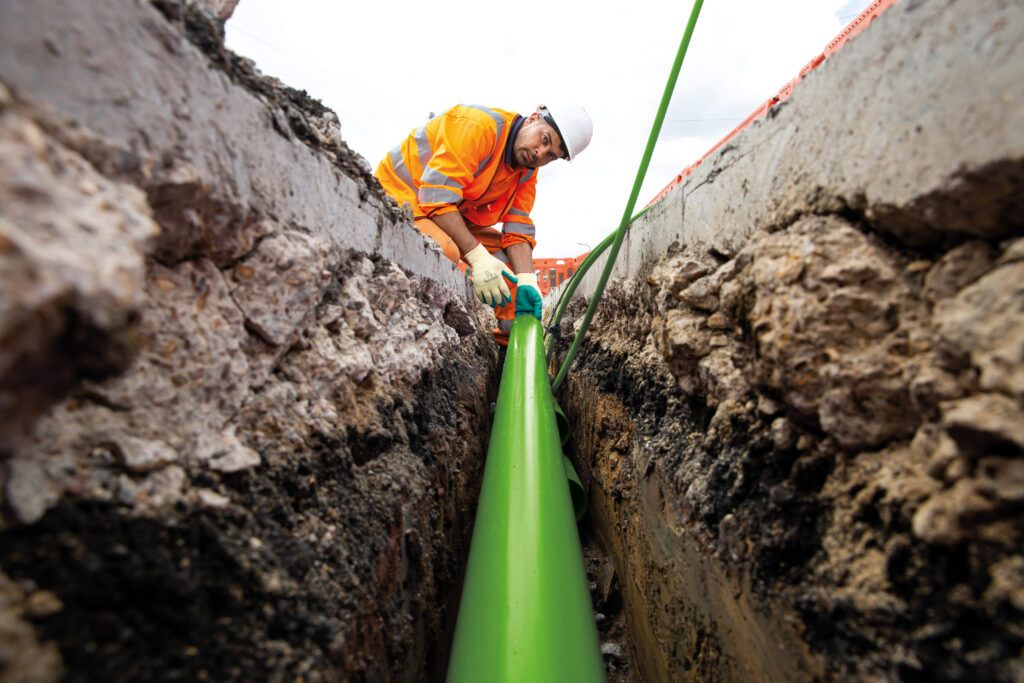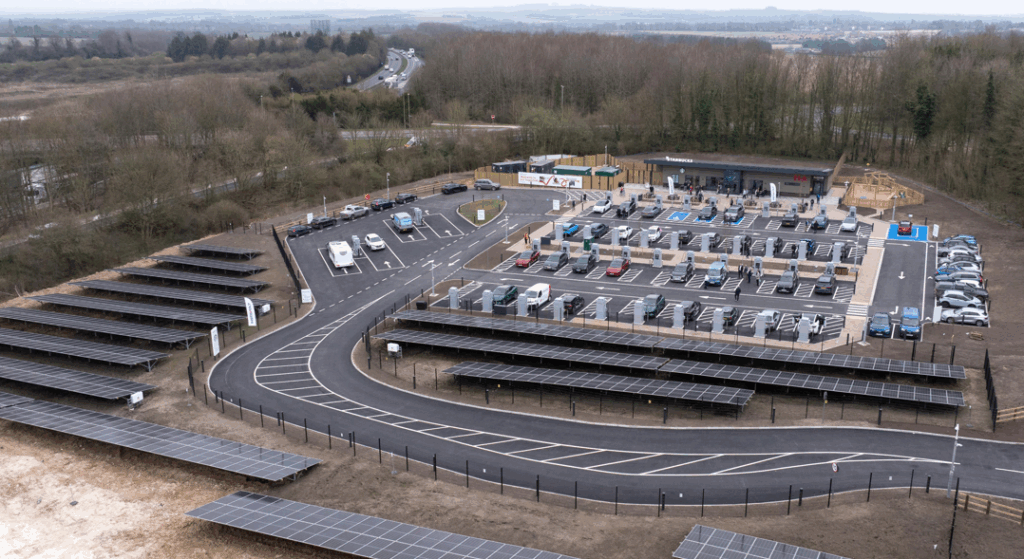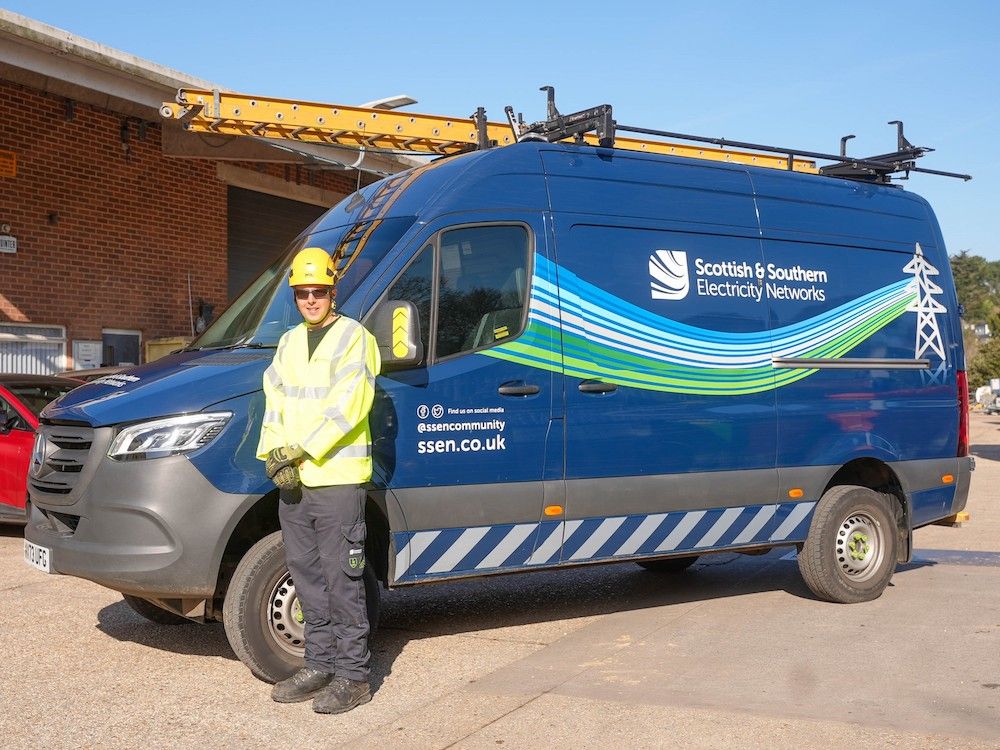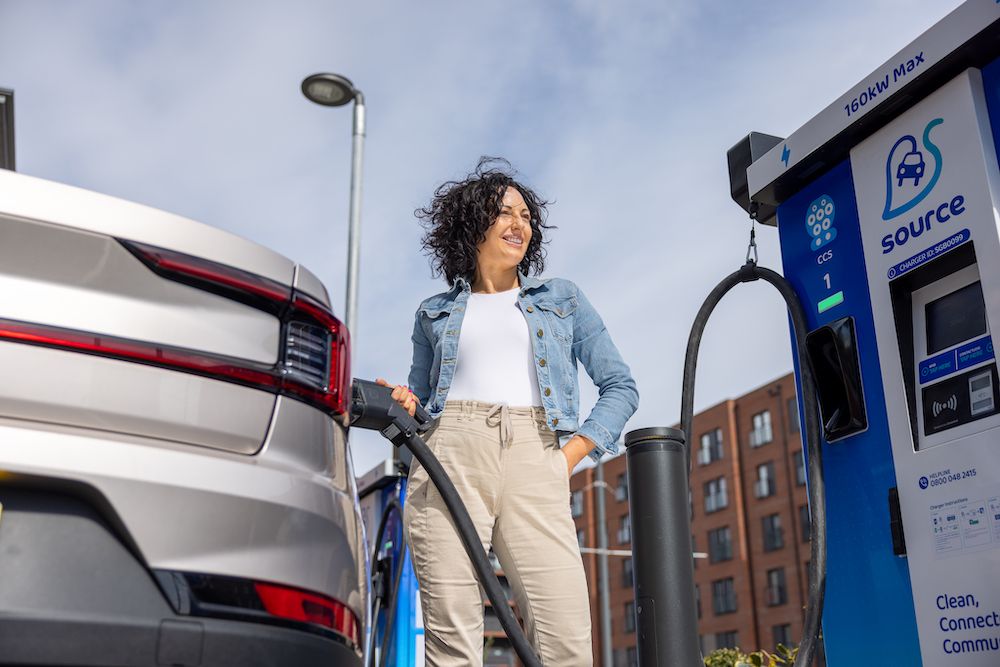Mike Cafferky, Operations Director of OCU Evolution, discusses the challenges and opportunities that come with ensuring the UK’s electric vehicle (EV) transition remains in full swing.
The first “real” electric vehicle (EV) was introduced to roads in the US in 1888, meaning we’ve had over 100 years of automotive advancements to weigh up their potential as the natural successor to fossil fuel powered vehicles.
Despite this, it’s only recently that demand for EVs to become the main form of transportation has intensified. This is due to a series of policies and commitments introduced by the Government, which have been designed to support the UK’s move to net zero by 2050.
To meet this target, the UK needs a radical reduction in the burning of fossil fuels, phasing out some of the biggest emitters, petrol and diesel cars, and replacing them with cleaner, more sustainable electric vehicles (EVs).
Businesses need to view the adoption and integration of EVs as an essential process and not something that is merely a consideration.
The key benefit for transitioning is to improve a company’s sustainability and impact on the environment. Businesses operating fleets of EVs have lower emissions compared to those with petrol and diesel vehicles. Even counting electricity generation, the carbon emissions of an electric car are around 17-30% lower than driving a car with an internal combustion engine[1].
Grants and financial incentives are available for small-medium sized businesses looking to switch to an EV fleet. The Government’s Electric vehicle infrastructure (EVI) grant for staff and fleets[2] provides SMEs with money off the cost of installing EV chargepoints and supporting infrastructure for their staff and fleet vehicles.
EVs offer other benefits too, such as lower Benefit-in-Kind tax rates, 0% road tax until 2025 and exemptions from London Congestion Charges. VAT registered companies can also claim back 50% of the VAT on vehicle payments or maintenance costs.
With new vehicles powered by combustion engines set to be banned by 2035 in the UK, businesses can benefit by investing and evolving their fleets now.
Is range anxiety still a prominent issue with EVs?
Almost all (99%) of car journeys in England are under 100 miles[3] and most could be made by an EV without needing to recharge. This is simply because many EVs can now travel further than before. The average battery range for new vehicles launched in 2023 was almost 300 miles[4] on a full charge, while vans such as the Ford E-Transit can do around 236 miles when fully charged.
Despite this, there is still a level of anxiety among the public regarding existing electric vehicle infrastructure (EVI) – most notably the accessibility of charging points for long journeys. The Society of Motor Manufacturers and Traders (SMMT) reported in 2022 that, “as plug-in vehicle registrations surged, public charging infrastructure expansion has failed to keep pace. Plug-in cars on the road had grown a phenomenal 280.3% between 2019 and 2021, but slow/fast public chargepoints grew by just 69.8% in the same period.”
That’s why we’re addressing these concerns by providing a sensible, end-to-end solution. OCU Evolution provides businesses with the complete EV package, from installing and connecting infrastructure through to providing charging units for cars, lorries and buses. We also support with the ongoing maintenance and commissioning of sub-stations, solar panels and batteries.
And the timing couldn’t be better. The SMMT reported that Britain’s millionth battery electric car (BEV) hit the road in January 2024, and SMMT’s latest used car market figures for 2023 show that BEV uptake was up 90.9%, proving to us that there is potential for huge growth provided supply from the new market remains consistent.

Is the current EV charging infrastructure prepared to cope with further EV adoption? If not, what needs to be done to remedy this?
EV adoption will stall without a public network of chargers for drivers. People need access to chargepoints at home and at work, as well as for long-distances or those in need of a quick top-up.
As of January 2024, 55,301 charging points have been installed across the UK[5], but the Government has said it wants to grow that number to 300,000 charging points by 2030. This highlights the big task ahead, and the need to expand the network and increase investment. Despite this, we want to contribute towards that momentum of getting those charges in the ground over the next six years. For us it’s about having the technicians and the right equipment in the right place to service businesses who want to build their charging capabilities. While the UK has a long road ahead, if we continue to collaborate and embrace technological advancements, we’ll be in a strong position to hit the zero-emission vehicle target.
We know there is a huge opportunity to create a more sustainable and efficient transport system in the UK, but if the EVI and charging stations are not in place, it will be increasingly difficult to encourage businesses and members of the public to buy into this new norm. However, despite the challenges, we’ll be on hand to help businesses across the nation make a successful transition to a greener, cleaner future.
Images courtesy of OCU.
References:
[1] Research by the European Energy Agency
[2] https://www.find-government-grants.service.gov.uk/grants/electric-vehicle-infrastructure-grant-for-staff-and-fleets-1#eligibility
[3] https://www.gov.uk/government/publications/electric-vehicles-costs-charging-and-infrastructure/electric-vehicles-costs-charging-and-infrastructure
[4] https://www.smmt.co.uk/2023/05/britains-new-car-market-boosted-by-battery-electric-vehicle-choice/
[5] https://www.zap-map.com/ev-stats/how-many-charging-points#:~:text=At%20the%20end%20of%20December,added%20to%20the%20Zapmap%20database.
6 https://www.iea.org/reports/global-ev-outlook-2023/trends-in-batteries
7 https://www.mckinsey.com/industries/automotive-and-assembly/our-insights/the-race-to-decarbonize-electric-vehicle-batteries














